BOOKS
-
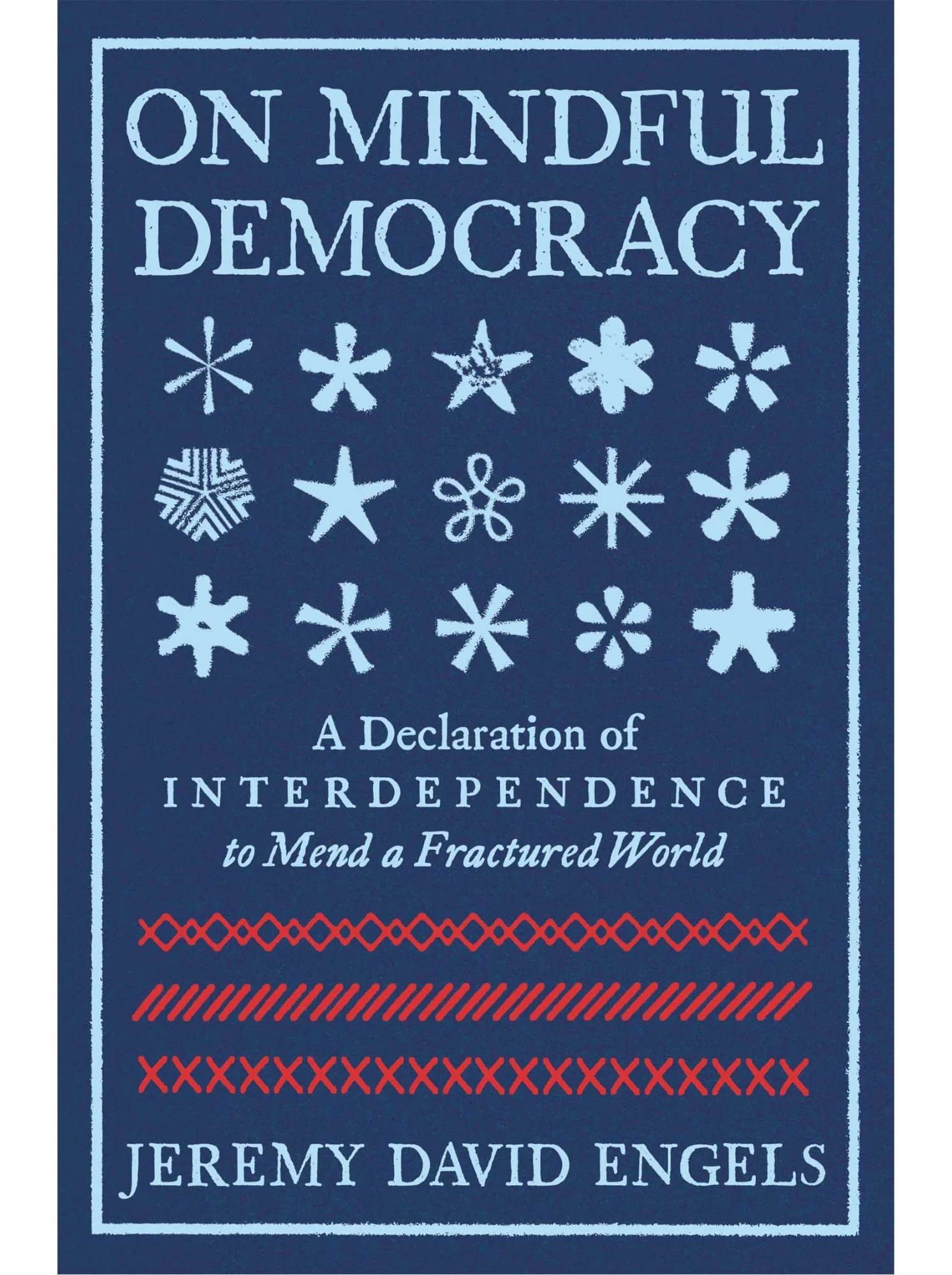
On Mindful Democracy: A Declaration of Interdependence to Mend a Fractured World
(Parallax, 2026)
On Mindful Democracy presents a radical reimagination of democracy: it is not a war between political parties; it is a communal practice of how we care for each other and the life that we share. Beginning with a rewriting of the Declaration of Independence as a Declaration of Interdependence, this book offers an antidote to political burnout and civic despair. Here you will find a rousing call for a new politics based in everyday acts of mindfulness, compassion, and connection: for there is no way to democracy, democracy is the way.
-
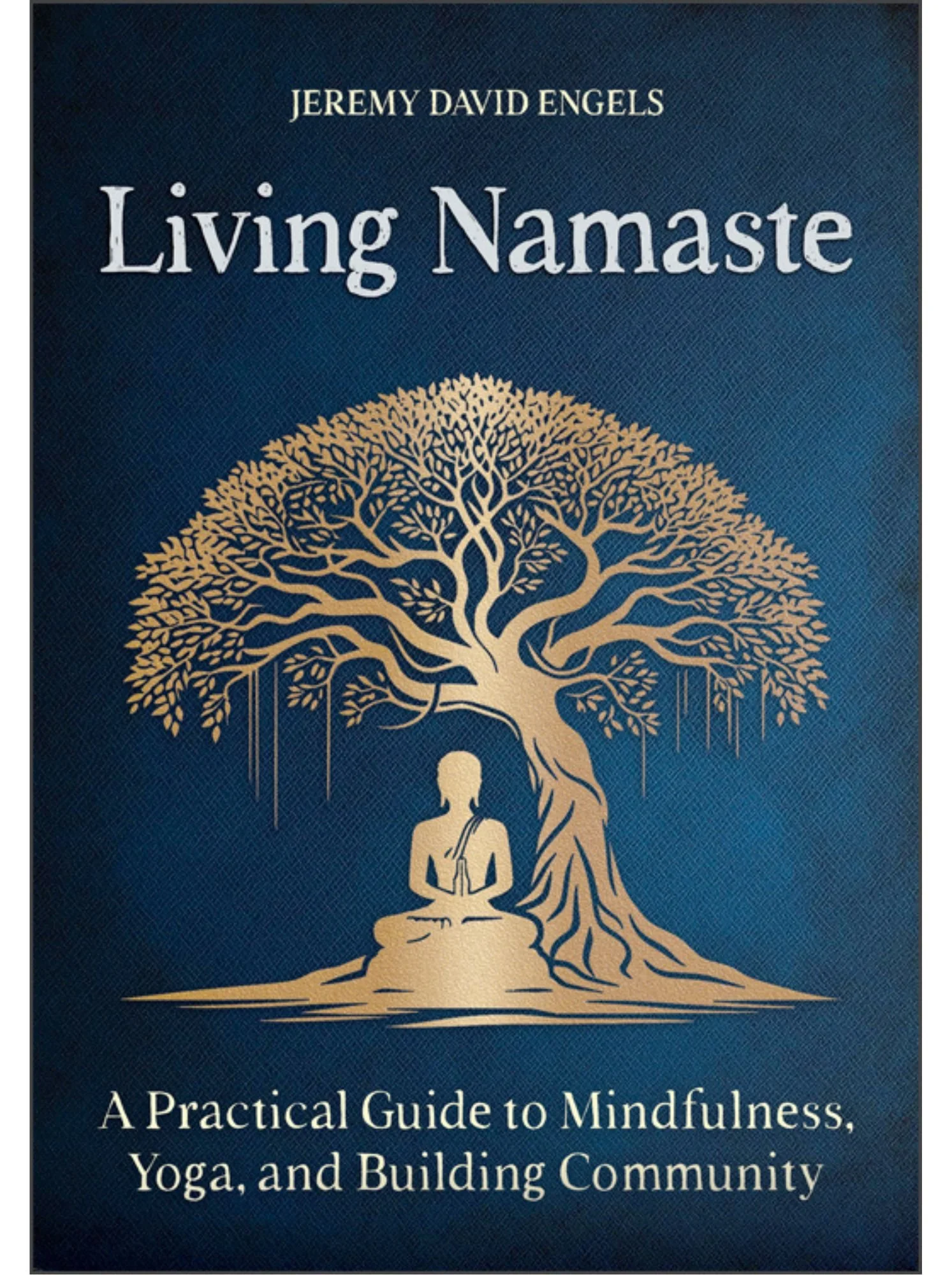
Living Namaste: A Practical Guide to Mindfulness, Yoga, and Building Community
(Inner Traditions, 2026)
“Namaste” has become a common phrase to say at the end of yoga classes, but its deeper significance is often overlooked. This Sanskrit greeting means “I bow to the divine in you,” and symbolizes recognition and respect for the divinity in others. This deeply personal and practical book invites readers to see “namaste” as more than a polite expression. It is a powerful principle for building connection and community.
-
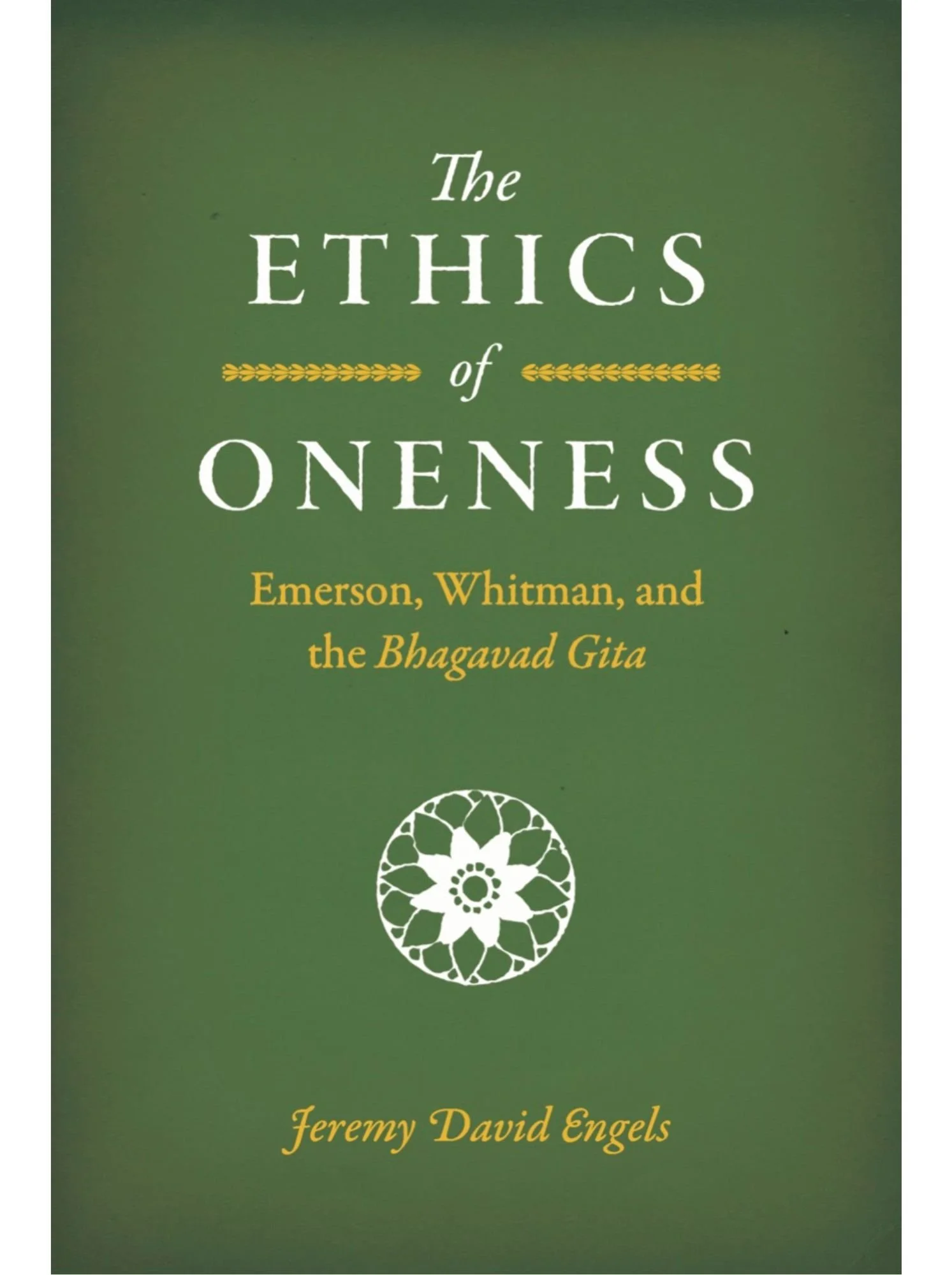
The Ethics of Oneness: Emerson, Whitman, and the Bhagavad Gita
(University of Chicago Press, 2021)
It might be surprising given our nation’s emphasis on individualism and diversity, but the theme of oneness has long preoccupied American thinkers. The Ethics of Oneness explores how the American Transcendentalists—including Ralph Waldo Emerson and Walt Whitman—read the treasured work of Indian philosophy, the Bhagavad Gita, for what it had to say about oneness. This book reorients talk of oneness toward questions of ethics and democracy. It asks, what makes a philosophy of oneness ethical? In what ways can a philosophy of oneness be adapted for democracy?
-
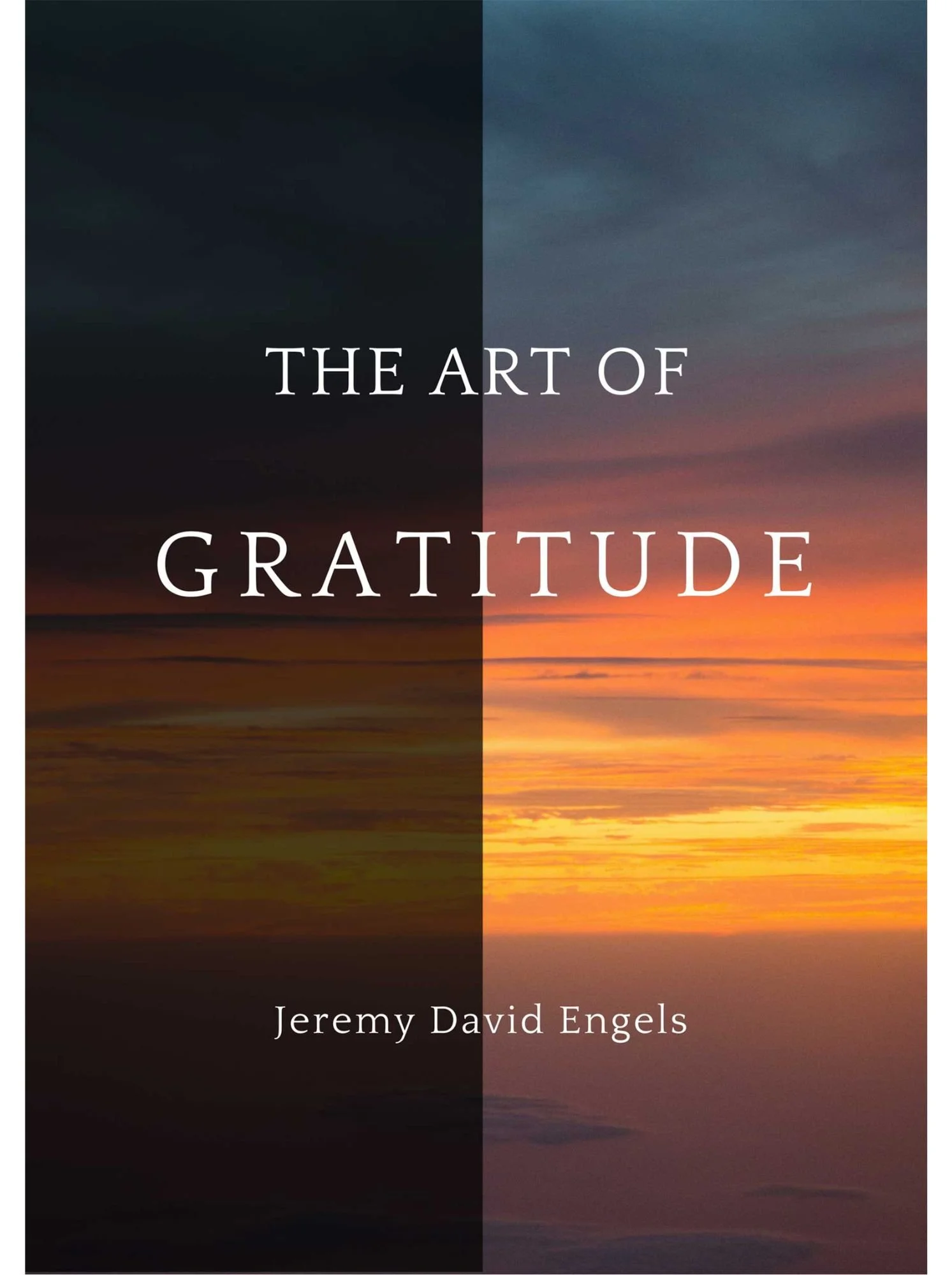
The Art of Gratitude
(SUNY Press, 2018)
The Art of Gratitude explores the central, and often paradoxical, role that gratitude plays in democratic politics. Viewed as thanksgiving, rather than indebtedness (as in the common phrase, “I owe you a debt of gratitude”), gratitude becomes a strong foundation for democracy that reorients our politics away from resentment, anger, and division and toward a renewed emphasis on the common good.
-
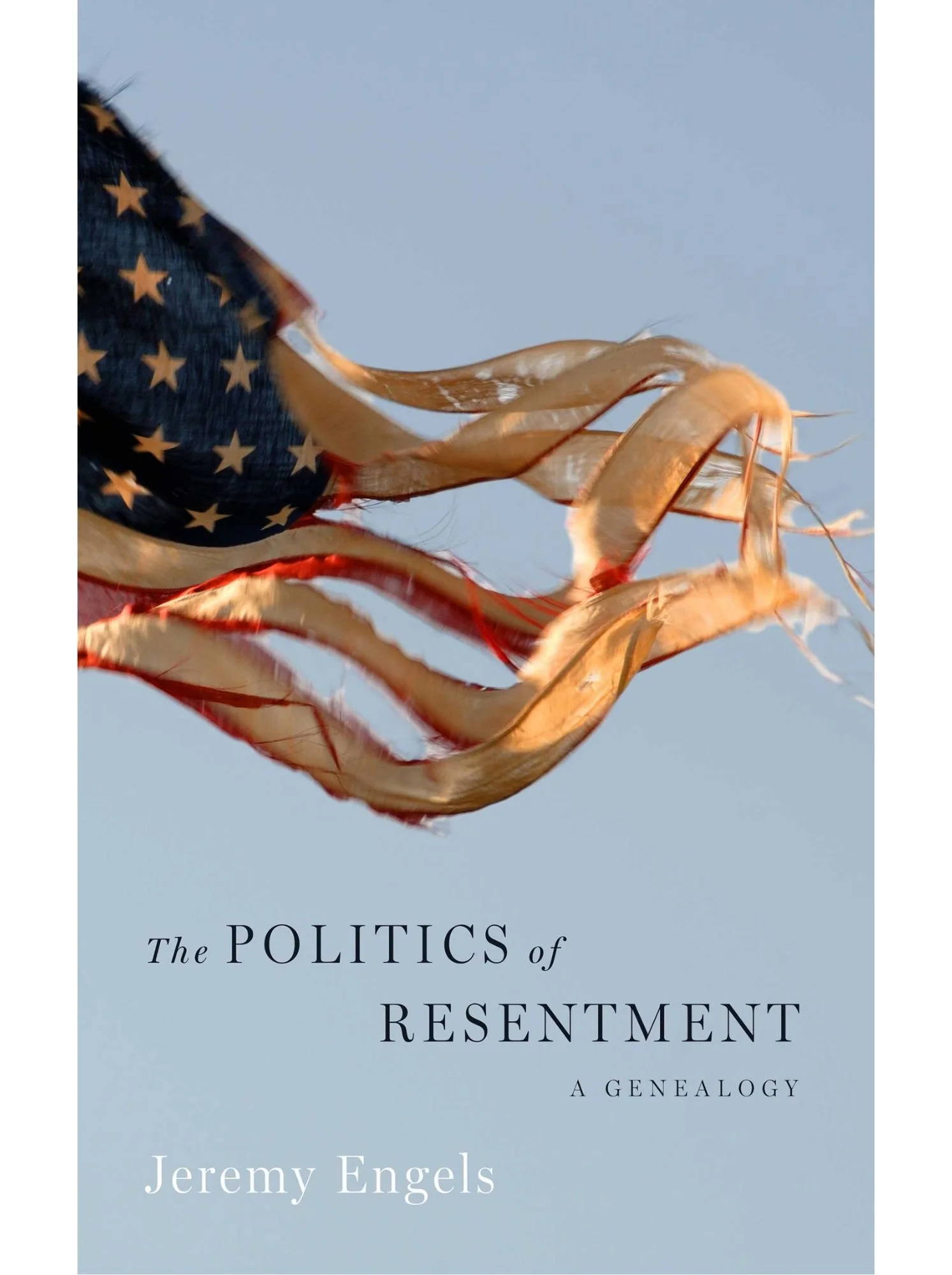
The Politics of Resentment: A Genealogy
(Penn State University Press, 2015)
The Politics of Resentment asks, how did American politics become so violent, and how did the American people become so divided? By tracing the central role that the emotion of resentment has played in our politics since Revolutionary War, this book answers these questions. It is written to enable citizens to have the kinds of conversations that are desperately needed, right now, in order to live the United States of America’s founding ideals: life, liberty, happiness, and equality.
-
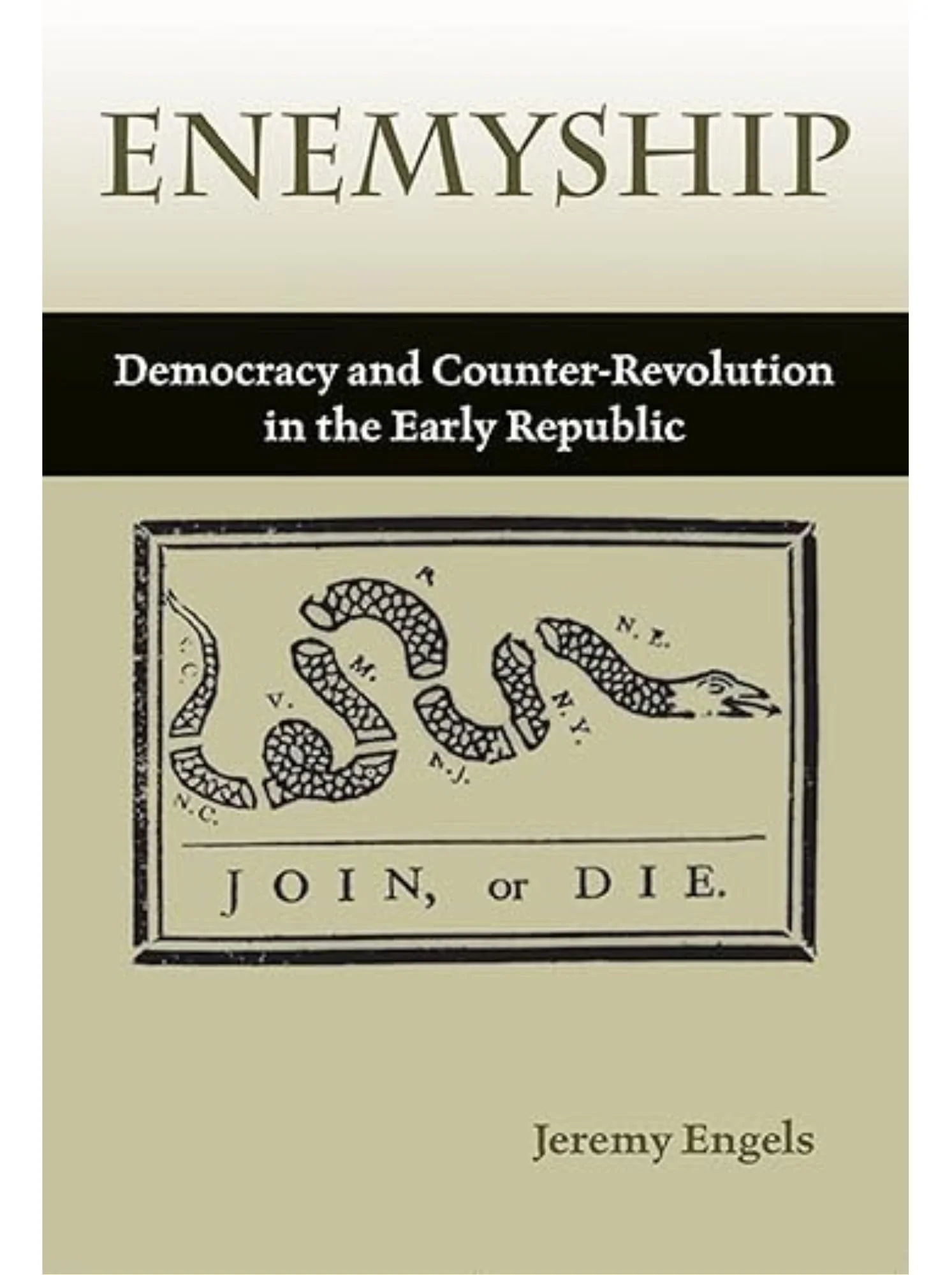
Enemyship: Democracy and Counter-Revolution in the Early Republic
(Michigan State University Press, 2010)
Enemyship examines the founding paradox of the United States: the very same revolutionary, democratic energy unleashed by the American Revolution and the Declaration of Independence threatened the new nation once independence was won. To navigate this paradox, the founders of the United States utilized the rhetoric of "enemyship," calling upon Americans to unite in opposition to their shared national enemies. In so doing, they wrote a script that we continue to act out, even today.
What People are Saying…
On Mindful Democracy
“On Mindful Democracy is a profoundly wise and timely offering—a call to awaken our hearts to the truth of our interdependence. With clarity and compassion, Jeremy Engels invites us to step out of division and into presence, to remember that democracy is not a battle but a shared practice of care. This book is a balm for weary spirits and a guiding light for those longing to heal our fractured world—from the inside out.”
— Tara Brach, author of Radical Acceptance and Radical Compassion
“Jeremy Engels invites us to reimagine our political system in his timely and refreshing take On Mindful Democracy, reminding us what a democracy can be when we recognize our interdependence and celebrate our differences.”
— Sharon Salzberg, author of Lovingkindness and Real Change
“Jeremy Engels writes with clarity and insight on the fruitful interdependence of mindfulness and democracy. This is certainly a topic of major interest to all of us concerned with our shared planetary future. His fresh spirit and authentic voice are not only refreshing but enlightening. Read this and be transformed!”
— Mary Evelyn Tucker, cofounder of the Yale Forum on Religion and Ecology and coauthor of Journey of the Universe
“Democracy is tested daily by forces of division, fear, and inequality. On Mindful Democracy reminds us that democracy is not merely a system of government but a daily practice of compassion, mindfulness, and interdependence. As a mayor and global advocate for compassion, I have seen how communities are transformed when people choose care over conflict and belonging over enemyship. Jeremy David Engels offers a hopeful and practical path toward a democracy that heals and unites—a vision every leader should embrace.”
— Greg Fischer, former Mayor of Louisville and President of the U.S. Conference of Mayors
Living Namaste
“The heart-opening practices in this wise book help us recognize the sacredness that shines through this living world.”
— Tara Brach, Author of Trusting the Gold
“The beautiful greeting Namaste invites a sacred connection. This book on Namaste shows us how to embody the spirit of Namaste with care and compassion.”
— Jack Kornfield, author of A Path With Heart
The Ethics of Oneness
“The Ethics of Oneness is a fascinating book about the early reception of yoga in the United states and its significance for contemporary democratic practice. . . . I welcome Engels’s invitation to pay deeper attention to the cross-national influences coursing through the social practice of democracy in all its contexts.”
— Alda Balthrop-Lewis, American Religion
“Engels's book is a masterclass in public-facing academic philosophy.”
— Apurva Parikh, Philosophy East and West
The Art of Gratitude
“The Art of Gratitude speaks with a powerful sermonic voice that challenges us to consider what practices and struggles we are prepared to engage in to create a world for which we can be thankful.”
— Nathan Crick, Quarterly Journal of Speech
“With this third book on emotion in a democratic setting … Jeremy Engels stands as a key contributor to the current reorientation towards emotion in rhetorical studies … The Art of Gratitude is a timely contribution to the age-old question of the role of emotion in rhetoric and politics and offers a strong statement on the centrality of emotion to cognition and persuasion.”
— Lisa Storm Villadsen, Rhetoric Society of Europe’s Newsletter
“Challenging in its call for reinvigorated rhetorical criticism, this is a book that makes us think.”
— David Zarefsky, former president of the National Communication Association and of the Rhetoric Society of America